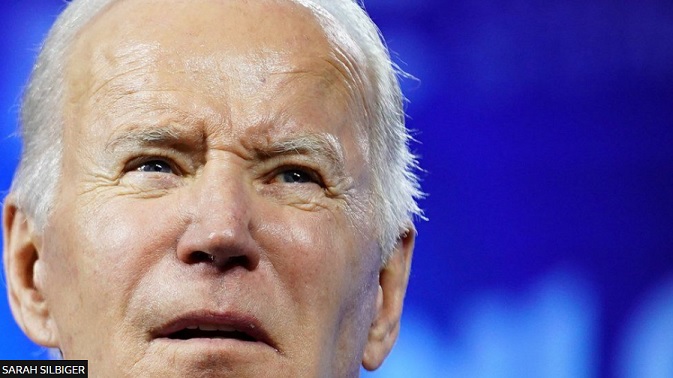
President Joe Biden said on Monday that intelligence indicated a growing Russian cyber threat to the US.
He said Russia was "exploring" cyber attack, but the US would use "every tool" to prevent and respond to such a move.
Mr Biden suggested Moscow could act in retaliation for sanctions imposed on it after Russia's invasion of Ukraine.
Russia's foreign ministry has said bilateral ties between Moscow and the US were on the "verge of rupture".
Mr Biden has previously warned of a possible cyber attack from Russia, saying on 24 February the US was prepared to respond.
In Monday's statement, Mr Biden said that intelligence had been "evolving", and that the US believes the "Russian government is exploring options".
Mr Biden also called for US companies to "accelerate efforts to lock their digital doors".
"You have the power, the capacity, and the responsibility to strengthen the cybersecurity and resilience of the critical services and technologies on which Americans rely. We need everyone to do their part," he said.
Mr Biden said the potential "malicious cyber activity" could be prompted by the "unprecedented economic costs" caused by economic sanctions imposed by the West.
The cyber security world has been braced for some sort of large scale cyber-attack from Russia since tensions began building between Russia and Ukraine.
Cyber authorities in the US, UK and elsewhere have been warning not just about attacks on Ukraine but on so-called "spill over", where other countries are targeted or where a hack accidentally spreads outside of the theatre of conflict.
The example authorities keep giving is the NotPetya wiper attack, which the US and EU have publicly blamed on Russian military hackers.
That malicious software spread uncontrollably in 2017 taking out thousands of businesses around the world and causing an estimated $10bn (£7.6bn) of damage.
Although President Biden doesn't explicitly say it, the concern seems to be about some sort of attack that could affect a critical part of US infrastructure.
We saw the disruption and distress caused last year on the east coast when criminal hackers caused an oil pipeline to switch off supplies.
In the worst case scenario, a major cyber-attack on the US or another NATO member could trigger Article 5, its collective defence clause.
On one hand, President Biden's warning is unsurprising and simply a repetition of the "shields up" initiative started by his government months ago.
On the other, western intelligence has been extremely effective at guessing the next move of the Kremlin so his words will potentially carry extra weight in the context of the escalating conflict.

